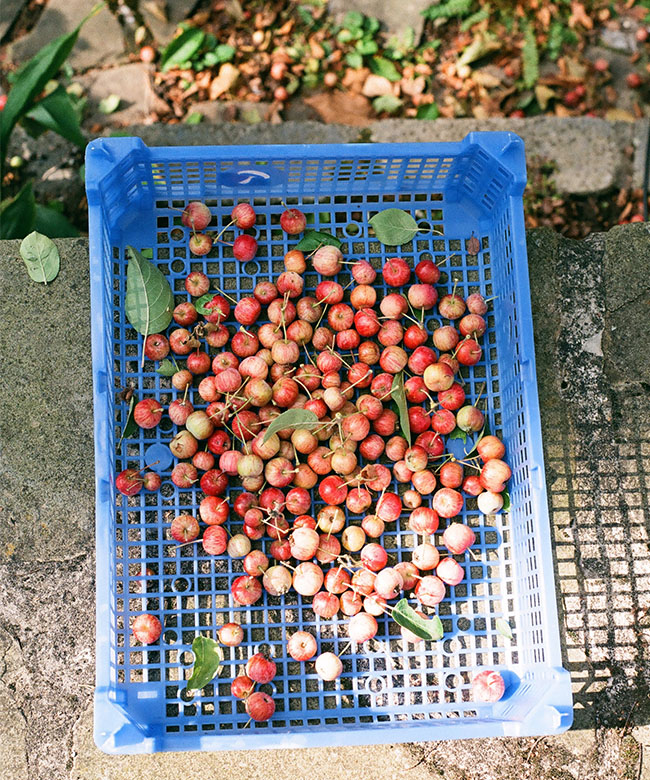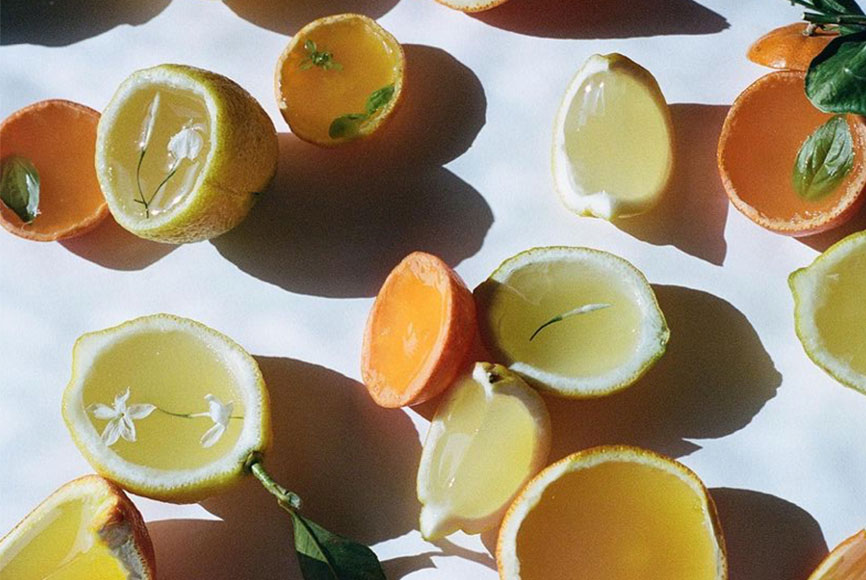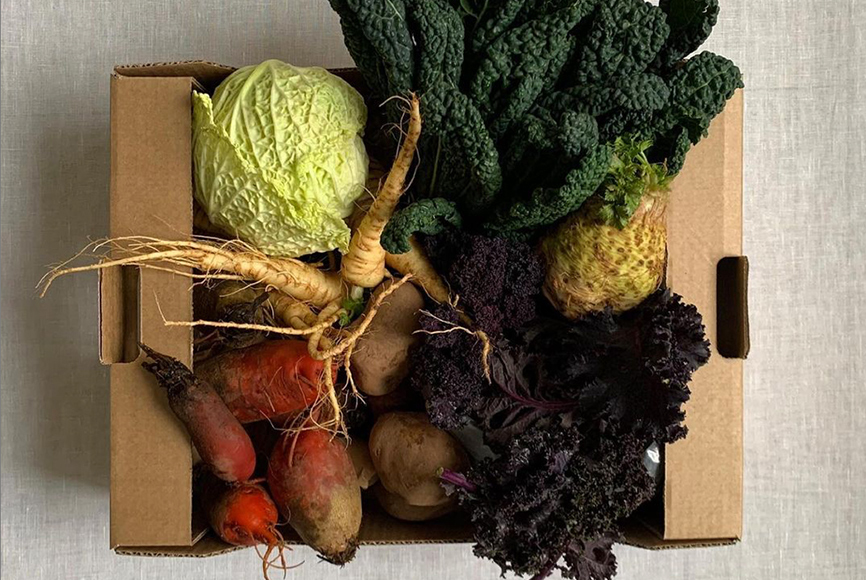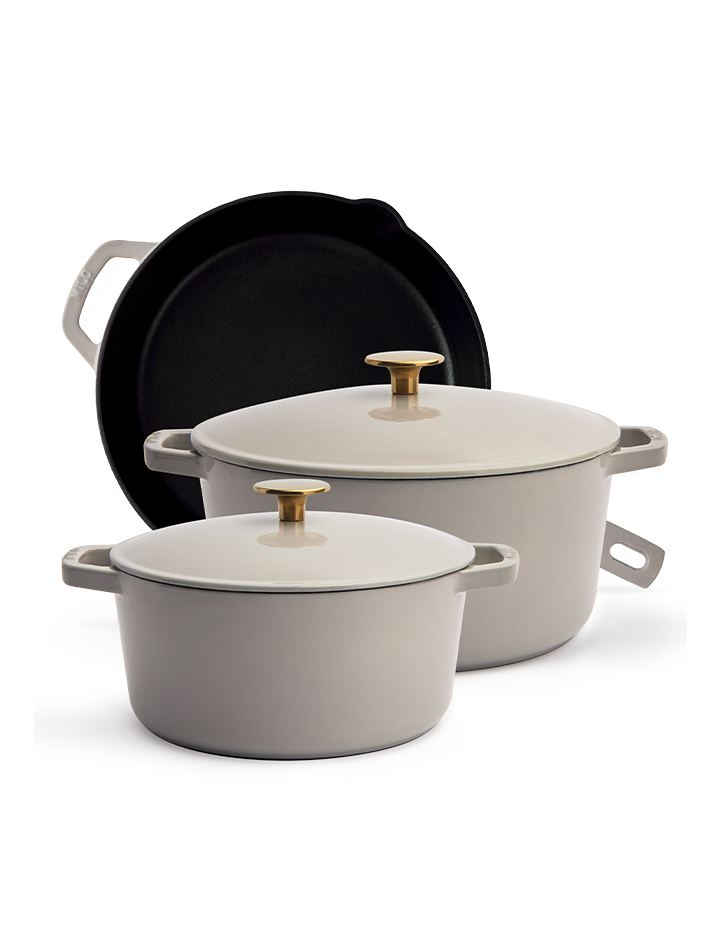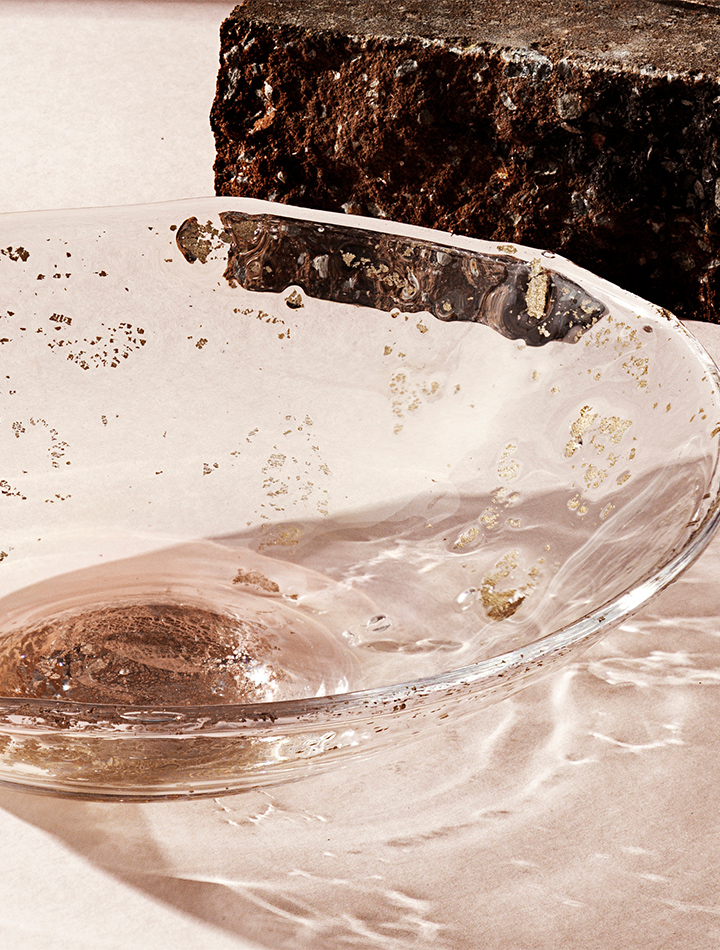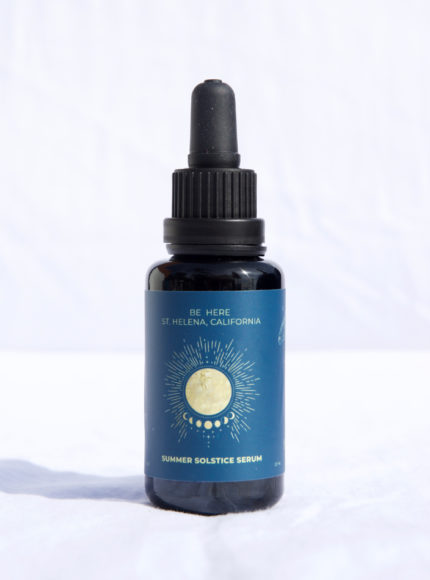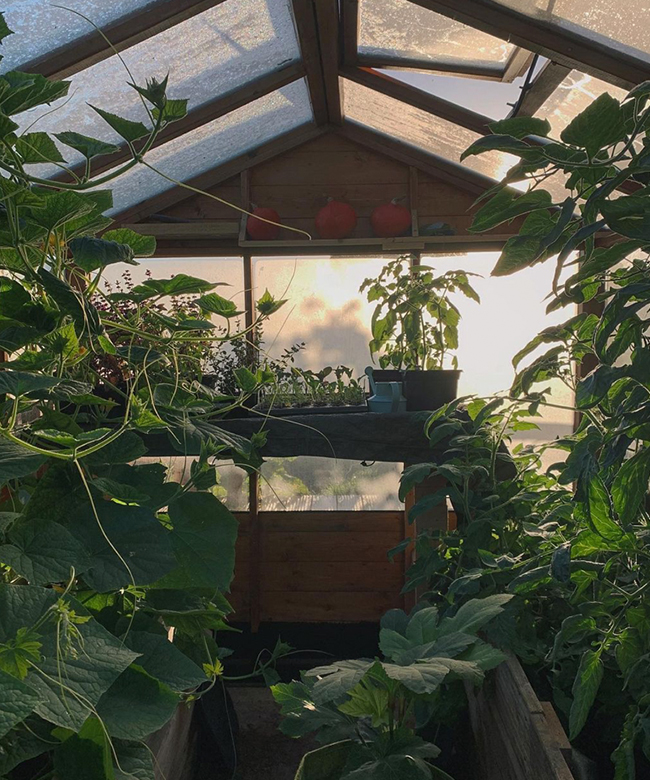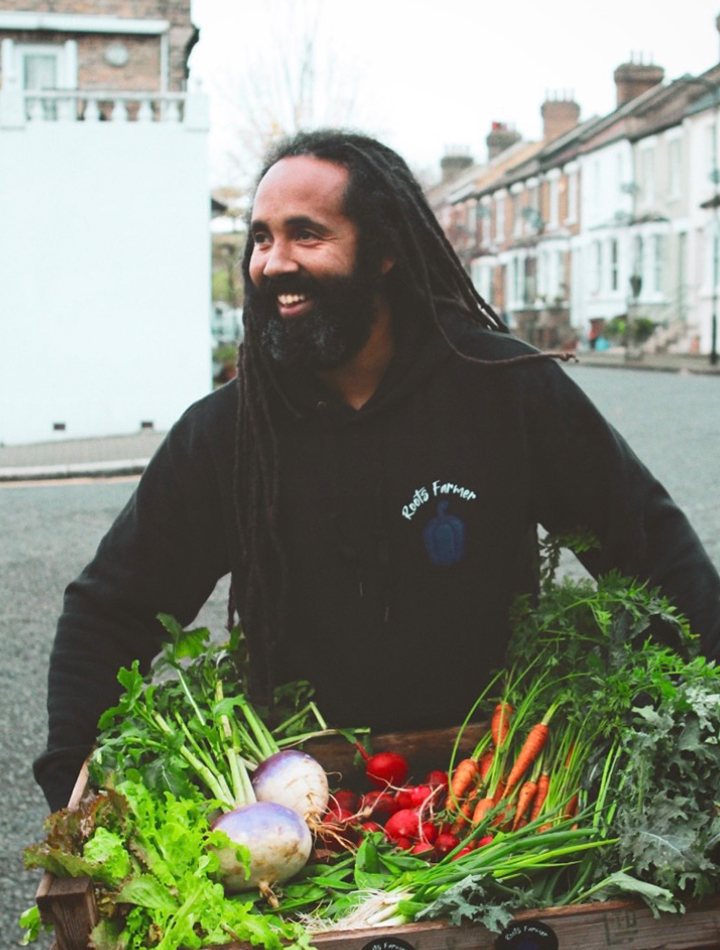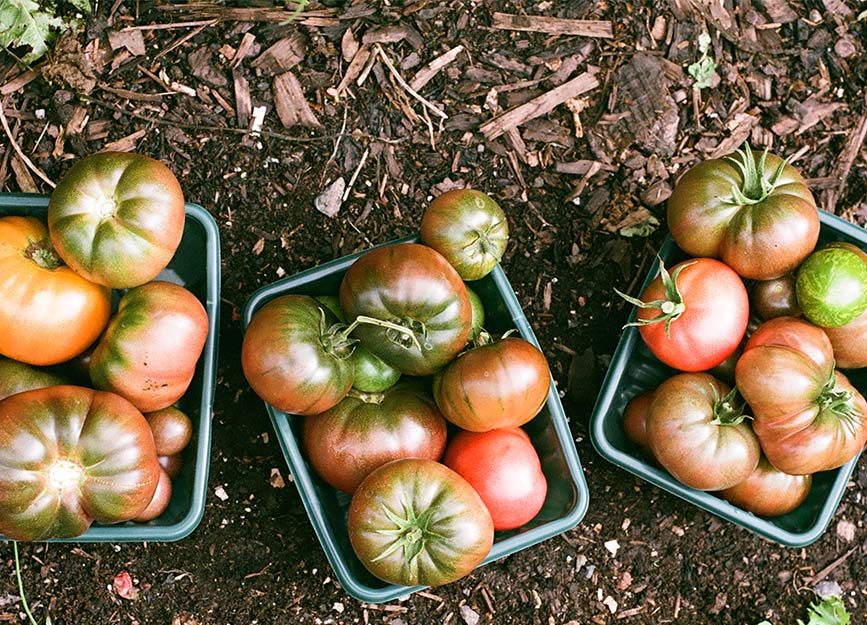

@taylorblair1
flamingo_estate
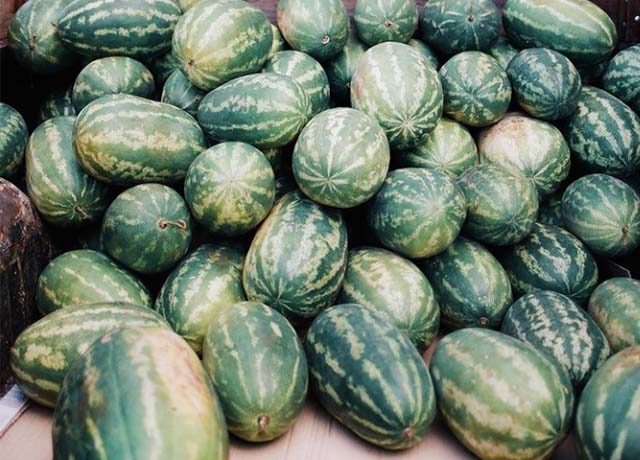

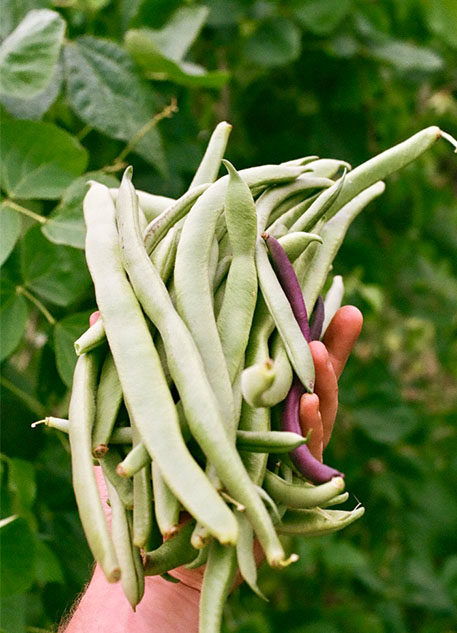

@taylorblair1
Environment
Why is Organic Food Better For You & The Planet?
You’ve probably seen and heard the term ‘organic’ everywhere – on food, products, wine, and clothes. Lots of us don’t exactly know what organic really means but we do know it is supposed to be better. It is tricky because the definition of organic differs from country to country, where there are different lists of requirements to obtain the certification. Therefore, defining organic is not always simple! Not all organic farming is positive farming, as anything done on a very large and industrial scale cannot be sustainable. In this piece, our editor Taylor walks us through the issues with conventional farming and the parts of organic farming that are also, unsustainable.
So, What's Wrong With Conventional Farming?
Before we can chat about all the benefits of organic farming, we must first talk about how unsustainable lots of agriculture is today. Conventional farming is usually done on a big scale with chemicals and tractors, so that things can be grown and picked easily, without risks of damage from pests.
You’ve probably heard of the act of tiling the soil, where the soil is physically turned. However, it is an incredibly harmful practice that “breaks the complex structures and biological interactions that soil life works to create. This process hastily depletes organic material and creates a loose soil structure. The loose soil easily separates and greatly increases rates of soil erosion. Soil erosion is the process of soil washing away by flow of water. Combine soil erosion and rapid decomposition of organic material in soils and we are left with weak, diminished, and unhealthy soil.”[1] The soil is the most important part of the growing process and when we grow food in depleted soil, we get plants that lack vitamins and nutrients – things we need to be healthy ourselves.
More than 1.1 billion pounds of pesticides are applied annually to crops, just in the US.[1] Pesticides are supposed to protect crops against weeds, insects, animals, and fungi – all things that play vital roles in our ecosystem! Since the end of the Second World War, we have been at war against these so called pests. “Due to their prevalence, these compounds can potentially pollute all tissues of life on Earth. According to the National Institute of Health, exposure to pesticides that end up in our air, land, waterways, and food supply, are known to elicit immune suppression, hormone disruption, diminished intelligence, reproductive abnormalities, and cancer in humans.”[2] Pesticides don’t just kill specific pests, but they contaminate our entire world, killing and mutating living organisms. Honeybees are just one of the species, whose numbers are on a steep decline, with a strong link to pesticides – their populations have dropped by 29%-26% each year since 2006.[3] Pesticide run off, which finds its ways into our waterways has mostly been an ignored issue. “Studies of major rivers and streams find that 90% of fish, 100% of surface water samples, and 41% of major aquifers contain one or more pesticides at detectable levels.”[4] This is a major problem, as it kills off marine life and has been a leading contributor to the fast decline of different species.[5]
For a multitude of reasons, conventional farming practices are hugely destructive. Agriculture is the cause of at least one third of carbon emissions worldwide, making it one of the largest contributes to carbon pollution,[6] which is why it is essential that we question how our food is grown.
The Benefits of Organic -
According to the Soil Association, if all of Europe’s agricultural land followed organic principles, farming-related emissions could drop by 40-50% by 2050 and with plenty of healthy food to feed a growing population.[1] This is because organic farms use way less energy than conventional farms as organic standards encourage farmers to use a closed loop system, “making use of what’s to hand and limiting the use of imported resources.”[2] Organic farms also do not use any chemical pesticides or fertilizers, and rely on natural alternatives, therefore they don’t emit those emissions either. Since soils store more carbon than our atmosphere and all the world’s plants combined, maintaining healthy soils are one of our best ways to fight climate change. That is why organic farming is so important, because the practice is based on nourishing the soil, which in turn helps the soil build carbon!
While allowed in conventional farming, the use of genetically modified organisms (GMOs) is banned by organic certifications. GMO seeds were created over twenty years ago in laboratories to modify a seed’s DNA to create desired characteristics in plants. Because they are not natural but artificially created, they are patented by major corporations. Just four companies, Monsanto, DuPont, Sygenta, and Dow control around 60% of the entire seed market.[1] Farmers who buy and use GMO seeds must pay licensing fees to these big corporations and must sign contracts that they will grow the seeds in specific ways. This privatization of seeds has led to corporate control over farmers, who are at risk of being sued if they ‘misuse’ the patented seeds.[2] Since organic farming doesn’t allow for the comedication of seeds, farmers aren’t trapped by big corporations and are free to farm how they desire.
Why Organic Isn’t Always Enough -
Organic does not always mean sustainable. People can simultaneously farm organically and industrially. Some organic farms till their soils and use techniques that comprise the health of the soil. Also, when you buy organic foods from the supermarket, some of those items have traveled thousands of miles. The best way to shop, especially for produce and dairy, is to shop from local farms. Our favourite way to shop is to visit our local farmers market every weekend, where we can buy organic, local, and plastic-free. It is wonderful way to support the local economy too! By shopping this way, your food only needs to travel a short distance and you end up eating seasonally. Also, you can pick and choose the farms you want to support at your local market. We love to pick regenerative farms that focus on their soil health, as their vegetables will have more nutrients and better flavor!



















